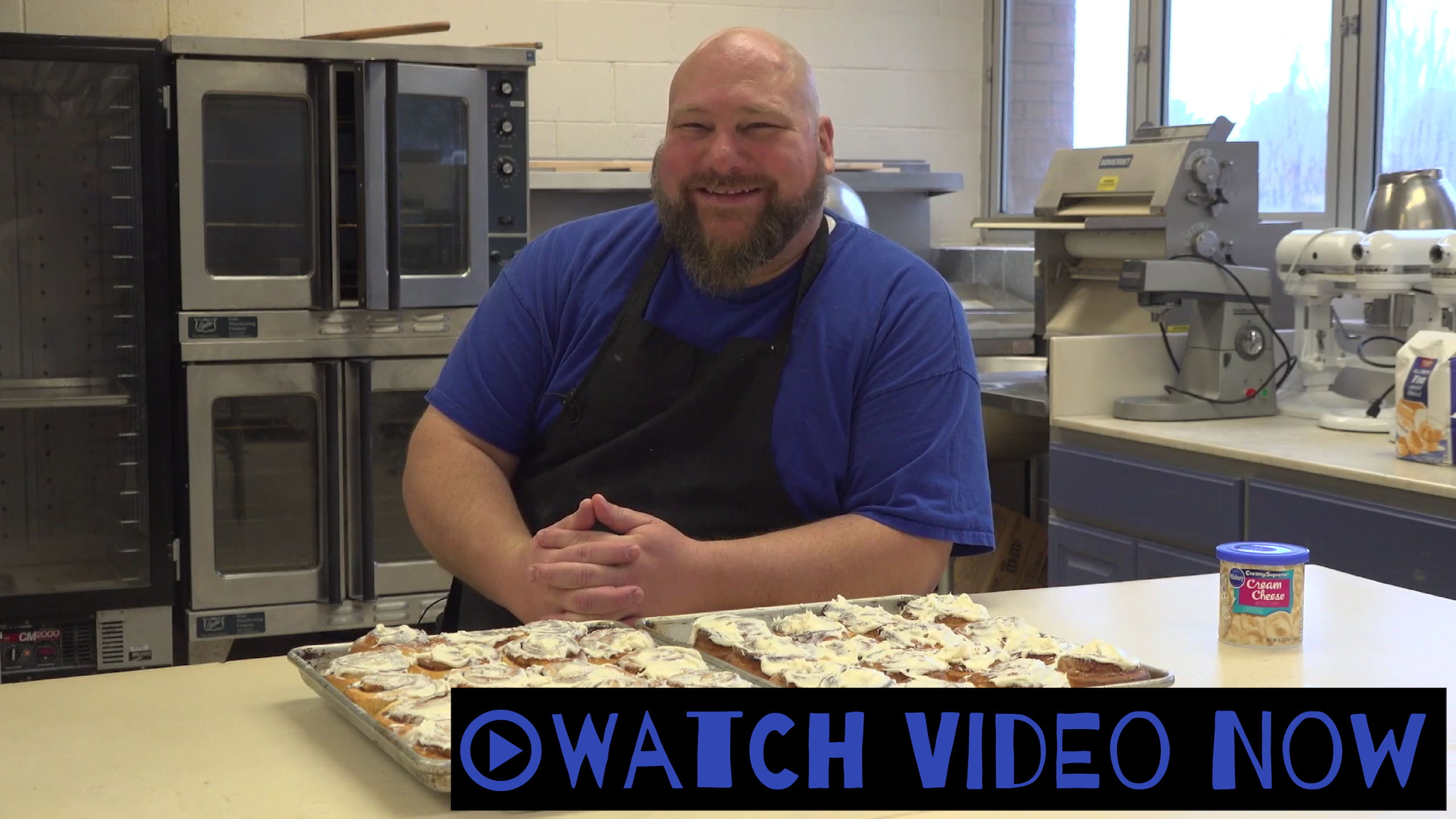At Continuing Education and Workforce Training (CEWT), we have instructors with specific work experience in the field. Having experienced instructors provides current industry practices that inform students more fully. Faces of CEWT highlights some of our finest instructors and staff to give you insight into the ‘sweet’ people who work here.
There are few things that are as delicious as freshly baked bread-- but making that bread from scratch makes it just that much better.
Ray Skeem, who teaches bread making classes for CEWT, knows just how good making your own bread can be.
He has been working for ISU for over 20 years working and supervising in the custodial department. For CEWT, he’s recently been teaching classes on making basic bread, dinner rolls, and cinnamon rolls.
Ray’s expertise in breadmaking making comes from his family. His uncles own the Retsel Corporation, a manufacturer of grain mills, in McCammon and his family kept wheat. “I grew up on whole-wheat, homemade bread. [My mom] showed me the tricks,” he said.
There are several ways to make bread, but the most basic bread recipe is very simple: water, sugar, yeast, salt, flour, and oil. With cinnamon rolls, the dough has to be an enriched dough, meaning that the recipes uses butter instead of oil, more sugar, and milk instead of water.
While the recipe may be simple, there are important things to turn good bread into amazing bread.
“One of the biggest tricks when you’re making a yeasted dough is getting the texture right. If you leave it too wet, it’s kind of hard to work with. If you get it too dry, it won’t rise and expand and do what you want it to do. You get [the texture] mastered, and you’re in good shape,” Ray explained.
“Having a proofing cabinet makes the process of getting the dough to raise so much faster, [and] keeps your dough from drying out. A convection oven circulates the heat, so you get a more consistent temperature,” he added.
When teaching baking classes, Ray has found that making dough ahead of time lets students advance onto further stages of the recipe while the dough they made proofs.
Ray enjoys teaching others how to bake awesome bread. When people see that it’s not as hard as it sounds, when they pay close attention and learn a few tricks-- “That rewarding,” Ray said.
If interested in signing up for cooking courses, visit cetrain.isu.edu to check out our catalog or call us at (208) 282-3372.

-1.png)

